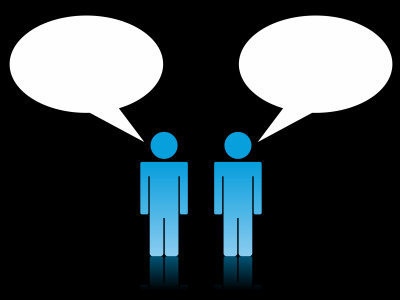What are some psychological techniques to avoid letting the other person get heated up when faced with a complaint or argument?

At school or work, it's common to find yourself clashing with people you don't like because you disagree with them or they're aggressive. Experts explain some psychological techniques that can help you in such situations.
What verbal de-escalation techniques are used in complaint handling? - ScienceDirect
How to Talk to the Most Difficult People | Psychology Today
https://www.psychologytoday.com/us/blog/why-bad-looks-good/202502/the-words-that-can-disarm-difficult-people

In online communication, the amount of strong language, such as aggressive language and arguments called ' response battles ,' is increasing. In a paper published in January 2024, Margot van Mulken, a researcher in communication and writing style at Radboud University in the Netherlands, studied the words used in web care that responds to complaints made online.
The study looked at a sample of complaints and responses made on Twitter (formerly known as X) to identify linguistic and rhetorical features that de-escalate arguments. From their findings, the researchers categorized three types of techniques that help to de-escalate the feelings of the complainer:
The first category is 'empathy.' The paper found that phrases that didn't heat up the complainer often involved an emotional connection with the customer. This included expressing gratitude, expressing empathy or sympathy, and using positive vocabulary.

The second is 'authenticity.' Authenticity is about making sure that employees' responses are personal and genuine. Automated, mechanical responses tend to heat up arguments, even if they are appropriate to the situation. Good WebCare employees use 'upgrades' like 'really' and 'very,' 'modality markers' like 'maybe (low confidence)' and 'should (desire),' interjections, and exclamations in their sentences to prove that their responses are not automated or scripted, making the other person feel that they are giving a spontaneous and real answer.
Upgraders are expressions used to increase the strength of an expression. For example, when dealing with a complaint, writing 'I'm really sorry' tends to convey a more sincere attitude than writing 'I'm sorry.' In addition, the paper states that modality markers are linguistic elements that show how the speaker is thinking and speaking, making the response seem more human and make the speaker feel that they are being 'treated individually' rather than mechanically.
The third strategy is 'adaptability.' In his 1991 paper, social psychologist Howard Giles proposed the '

The paper gives the following examples of specific adaptability techniques:
Mimicking the customer's speaking and writing style
When an angry customer says, 'This is terrible!', instead of saying, 'That's the problem,' show empathy by using the same words, 'That's terrible.'
・Encourage dialogue
By encouraging the customer to speak further, such as by saying, 'What specifically bothers you?', you can make them feel that you have provided a thorough response. You can also reassure customers by promising to continue responding, such as by saying, 'Please get back to me if you have any further questions.'
Emphasize commonalities
By empathizing with the points the other person makes, you can create a sense of being a team facing the same problems, rather than a conflict between you and the other person.
Prosecutor and media researcher Wendy L. Patrick has compiled a list of 'ways to ease arguments with undesirable people' that are useful outside of web care, based on Mulken's paper and her own experience. According to Patrick, it is important to first listen carefully to the other person to gain the foundation for utilizing communication adaptation theory. After that, it is necessary to develop a response that is tailored to the individual, not a general theory. In addition, when a heated person gets upset, the first step to show understanding and support is to first listen carefully and gradually say appropriate words to calm them down. Patrick says, 'Combining active listening with linguistics can ease difficult conversations and lead them to proposed solutions through relationship building and trust.'
Related Posts:
in Note, Posted by log1e_dh







